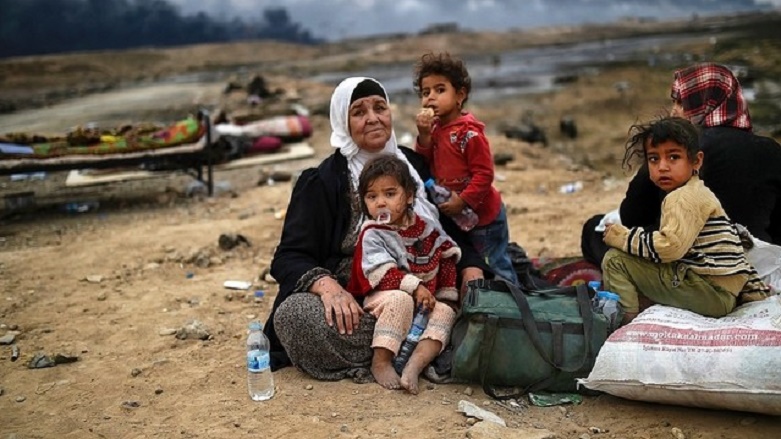KRG warns of impending humanitarian catastrophe in Kurdistan

ERBIL, Kurdistan Region (Kurdistan24) – The Kurdistan Regional Government (KRG) on Sunday called for immediate and direct aid to prevent a humanitarian catastrophe due to lack of proper shelter and medical care for civilians fleeing from Mosul to the Region.
The Kurdistan Region is home to over 1.8 million refugees and Internally Displaced Persons (IDPs) who escaped the threat of the so-called Islamic State (IS) from Iraq and Syria.
The total number of displaced people in Kurdistan currently makes up 29 percent of the Region’s population.
“The KRG has not only supported and hosted fleeing IDPs, but also provided leadership in planning humanitarian response and advocacy for resource mobilization,” the KRG’s Interior Minister Karim Sinjari stated.
The KRG official added the message was meant “to alert the international community of an impending humanitarian catastrophe,” adding more resources were required “to deal with the increased burden.”
Sinjari also mentioned there had been a dramatic increase in the number of critically wounded IDPs who flooded the hospitals in the Region, straining the healthcare sector of Kurdistan.
“Conducting adequate security screenings for incoming IDPs, as well as maintaining internal security for cleared IDPs, is a responsibility that is growing rapidly in size and complexity and will soon surpass the KRG’s technical and personnel capacities,” the Interior Minister warned.
Since the Mosul military operation started on Oct. 17, 2016, over 195,000 people fled the city.
According to the latest data, over 96,000 displaced persons arrived in Erbil and Duhok Provinces of the Kurdistan Region.
The KRG expects half a million people to flee IS-controlled areas once the military operation to liberate the western part of Mosul begins.
“Even though the eastern side of Mosul is liberated, displacement is still ongoing…due to the dire humanitarian and security situations,” Sinjari added.
Editing by Karzan Sulaivany
